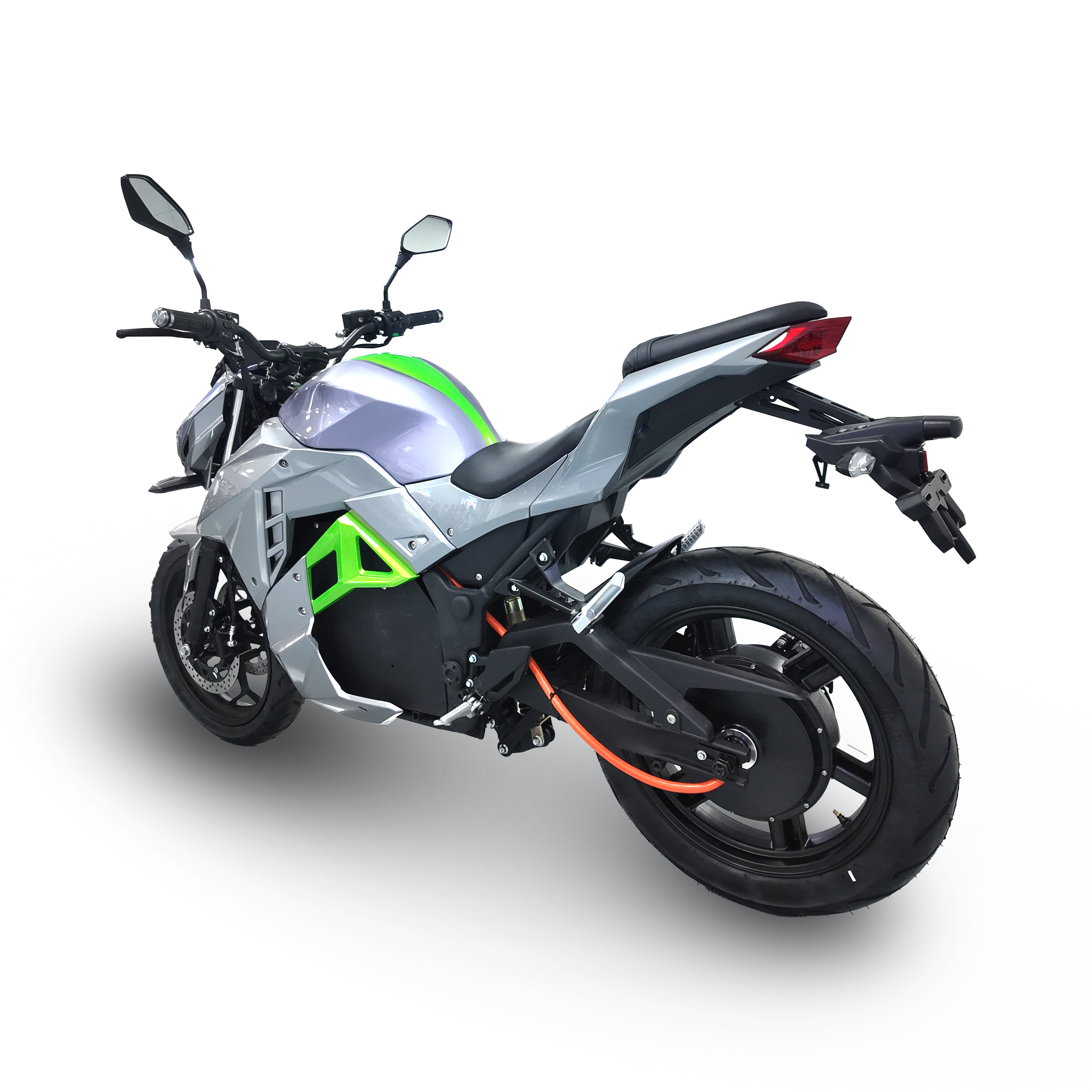The Urban Revolution of Two-Wheeled Electric Transport
The transportation landscape in cities is rapidly evolving, and electric motorcycles are at the forefront of this transformation. As urban areas become increasingly congested and environmental concerns take center stage, these innovative vehicles offer a compelling solution for modern city dwellers. They represent a perfect fusion of sustainability, practicality, and cutting-edge technology, making them particularly well-suited for navigating busy city streets.
The rise of electric motorcycles in urban environments isn't just a passing trend - it's a reflection of changing consumer preferences and growing environmental consciousness. These vehicles are revolutionizing how people think about personal transportation, offering advantages that traditional gasoline-powered motorcycles simply cannot match.
Environmental Benefits and Sustainability Impact
Zero Direct Emissions and Carbon Footprint
Electric motorcycles produce zero direct emissions during operation, making them an environmentally responsible choice for urban transportation. This characteristic is particularly significant in cities where air quality is a growing concern. By choosing electric motorcycles, riders actively contribute to reducing urban pollution levels and improving the overall air quality in their communities.
The environmental benefits extend beyond just emissions. When powered by renewable energy sources, electric motorcycles can achieve an almost zero carbon footprint, making them truly sustainable transportation options. This aspect becomes increasingly important as cities worldwide implement stricter environmental regulations and push for greener transportation alternatives.
Sustainable Manufacturing and End-of-Life Considerations
Many manufacturers of electric motorcycles are committed to sustainable production practices, using recycled materials and implementing environmentally friendly manufacturing processes. The batteries, while requiring careful disposal, are increasingly recyclable, and many companies offer battery recycling programs as part of their environmental commitment.
The long-term environmental impact of electric motorcycles continues to improve as battery technology advances and recycling infrastructure develops. This makes them an increasingly sustainable choice for environmentally conscious urban riders.

Cost-Effective Urban Transportation
Lower Operating Expenses
One of the most compelling advantages of electric motorcycles is their significantly lower operating costs compared to traditional motorcycles. Electricity costs per mile are substantially lower than gasoline, and with rising fuel prices, these savings become even more significant over time. Urban riders who commute daily can see substantial reductions in their transportation expenses.
Additionally, electric motorcycles require less maintenance due to their simpler mechanical structure. There's no need for oil changes, spark plug replacements, or many of the other routine maintenance tasks associated with conventional motorcycles, resulting in lower long-term ownership costs.
Government Incentives and Tax Benefits
Many cities and countries offer financial incentives for purchasing electric motorcycles, including tax credits, rebates, and reduced registration fees. These incentives can significantly lower the initial purchase price, making electric motorcycles more accessible to urban riders. Some locations also offer additional benefits like free parking or access to restricted traffic zones.
The combination of these financial benefits with lower operating costs makes electric motorcycles an economically attractive option for urban transportation, particularly for daily commuters and frequent riders.
Enhanced Urban Mobility and Convenience
Superior Maneuverability in City Traffic
Electric motorcycles offer exceptional maneuverability in urban environments, making it easier to navigate through congested city streets. Their instant torque delivery provides quick acceleration from stops, allowing riders to safely merge with traffic or make swift maneuvers when necessary. The lightweight design of most electric motorcycles further enhances their agility in tight urban spaces.
The ability to filter through traffic and find parking in compact spaces makes electric motorcycles particularly advantageous in dense urban areas. This increased mobility can significantly reduce commute times and make city navigation more efficient.
Charging Infrastructure and Range Considerations
The growing network of charging stations in urban areas makes electric motorcycles increasingly practical for city use. Many models now offer sufficient range for daily urban commuting and errands, with some capable of traveling over 100 miles on a single charge. Home charging options also make it convenient to ensure your vehicle is ready for daily use.
Modern electric motorcycles often come with smart features that help riders locate charging stations and plan routes efficiently, further enhancing their practicality in urban environments. The ability to charge at home overnight means starting each day with a full charge, eliminating the need for frequent refueling stops.
Advanced Technology and Features
Smart Connectivity and Digital Integration
Electric motorcycles are at the forefront of vehicular technology, offering advanced features like smartphone integration, GPS navigation, and real-time performance monitoring. These smart features allow riders to track their vehicle's status, plan routes efficiently, and even receive maintenance alerts through dedicated mobile apps.
Many models include regenerative braking systems that help extend range while reducing brake wear, and some offer different riding modes to optimize performance or range according to conditions and preferences. These technological advances make electric motorcycles particularly appealing to tech-savvy urban riders.
Safety and Security Features
Modern electric motorcycles come equipped with advanced safety features like ABS, traction control, and integrated lighting systems. Some models offer additional security features such as GPS tracking and smartphone-based immobilizers, providing peace of mind in urban environments.
The quiet operation of electric motorcycles, while sometimes cited as a concern, has led to the development of innovative safety features like programmable sound profiles that alert pedestrians while maintaining lower overall noise pollution levels.
Frequently Asked Questions
How long does it take to charge an electric motorcycle?
Charging times vary depending on the battery capacity and charging method. Using a standard household outlet, most electric motorcycles can be fully charged overnight (6-8 hours). With fast-charging stations, many models can reach 80% charge in 30-45 minutes.
What is the typical range of an electric motorcycle?
The range varies by model, but most modern electric motorcycles offer between 70-150 miles per charge in city riding conditions. Some premium models can achieve over 200 miles on a single charge. Range can be affected by factors like riding style, weather conditions, and terrain.
Are electric motorcycles suitable for all weather conditions?
Yes, electric motorcycles are designed to operate safely in various weather conditions. Their electrical components are well-sealed and protected from water and dust. However, like all motorcycles, riders should take appropriate precautions in adverse weather conditions.

